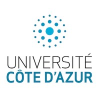Re-thinking Medical Study Statistical Evaluation - Sophia Antipolis, France - Université Côte d'Azur
Description
Re-thinking medical study statistical evaluation with resampling techniques // Re-thinking medical study statistical evaluation with resampling techniques:
- Réf
ABG-113113
ADUM-48908
- Sujet de Thèse 11/04/2023
- Université Côte d'Azur
- Lieu de travail
- Sophia Antipolis Cedex
- France
- Intitulé du sujet
- Rethinking medical study statistical evaluation with resampling techniques // Rethinking medical study statistical evaluation with resampling techniques
- Mots clés resampling, bootstrap, permutation test, statistical test, confidence intervals, reevaluation
Description du sujet:
- Medical studies have been revolutionized by the introduction of double-blind randomized placebo-controlled trials in the 1950s and the adoption of rigorous statistical tests to conclude on the efficacy of a treatment. This strong methodology has been the gold standard for more than 50 years. However, there is today growing concerns about limitations of this methodology.
In particular, the ubiquitous usage of statistical tests is highly criticized with a strong recommendation to simply drop them [1][2].
The argument of the detractor of statistical tests is that they are abused to make erroneous conclusion on the efficacy of a treatment.
they are hard to understand and the hypotheses (in particular the often required normality of the distribution) are hard to validate.
However, there are today better alternatives to these parametric tests:resampling techniques [3][4][5]. They are non-parametric, easy to understand and interpret, easy to compute, and valid for numerous statistics.
However, their usage is extremely rare in medical studies as there is no study demonstrating their merits in this context.
The objectives of this Ph.D. are the following
- 1) Develop a methodology to evaluate the correctness and robustness of resampling techniques on real datasets (possibly comparing the results with classical statistical methods). This methodology will have to explore how sampling a real dataset and how resampling a sample impact the results. The main objective is to go beyond perturbation of a normal distribution by working on real datasets. We will also have to consider numerical issues (such as rounding issues) on the outcome of the resampling.
- 2) Reevaluate published results having open data with resampling techniques and discuss the differences. In particular, we will also explore whether the assumptions of the classical statistical tools have been validated.
- Note on the summary: A Ph.
The presented summary gives the theme and a direction, not a detailed work plan that would be defined and adapted during the Ph.
D. thesis.Medical studies have been revolutionized by the introduction of double-blind randomized placebo-controlled trials in the 1950s and the adoption of rigorous statistical tests to conclude on the efficacy of a treatment.
This strong methodology has been the gold standard for more than 50 years. However, there is today growing concerns about limitations of this methodology.In particular, the ubiquitous usage of statistical tests is highly criticized with a strong recommendation to simply drop them [1][2].
The argument of the detractor of statistical tests is that they are abused to make erroneous conclusion on the efficacy of a treatment.
The main reasons of poor use of statistical tests are twofold:they are hard to understand and the hypotheses (in particular the often required normality of the distribution) are hard to validate.
However, there are today better alternatives to these parametric tests:resampling techniques [3][4][5]. They are non-parametric, easy to understand and interpret, easy to compute, and valid for numerous statistics.
However, their usage is extremely rare in medical studies as there is no study demonstrating their merits in this context.
The objectives of this Ph.D. are the following
- 1) Develop a methodology to evaluate the correctness and robustness of resampling techniques on real datasets (possibly comparing the results with classical statistical methods). This methodology will have to explore how sampling a real dataset and how resampling a sample impact the results. The main objective is to go beyond perturbation of a normal distribution by working on real datasets. We will also have to consider numerical issues (such as rounding issues) on the outcome of the resampling.
- 2) Reevaluate published results having open data with resampling techniques and discuss the differences. In particular, we will also explore whether the assumptions of the classical statistical tools have been validated.
- Note on the summary: A Ph.
Plus d'emplois de Université Côte d'Azur
-
IUT - Directeur/Directrice administratif/administrative
Nice, France - il y a 3 semaines
-
A Theory of Primitive Signals
Sophia Antipolis, France - il y a 6 jours
-
SCD - Responsable de bibliothèque
Nice, France - il y a 2 semaines
-
Laboratoire LEAT
Biot, France - il y a 3 semaines
-
UMR GREDEG
Valbonne, France - il y a 1 semaine
-
POLYTECH - Chargé/Chargée développement Alternance
Sophia Antipolis, France - il y a 3 semaines

